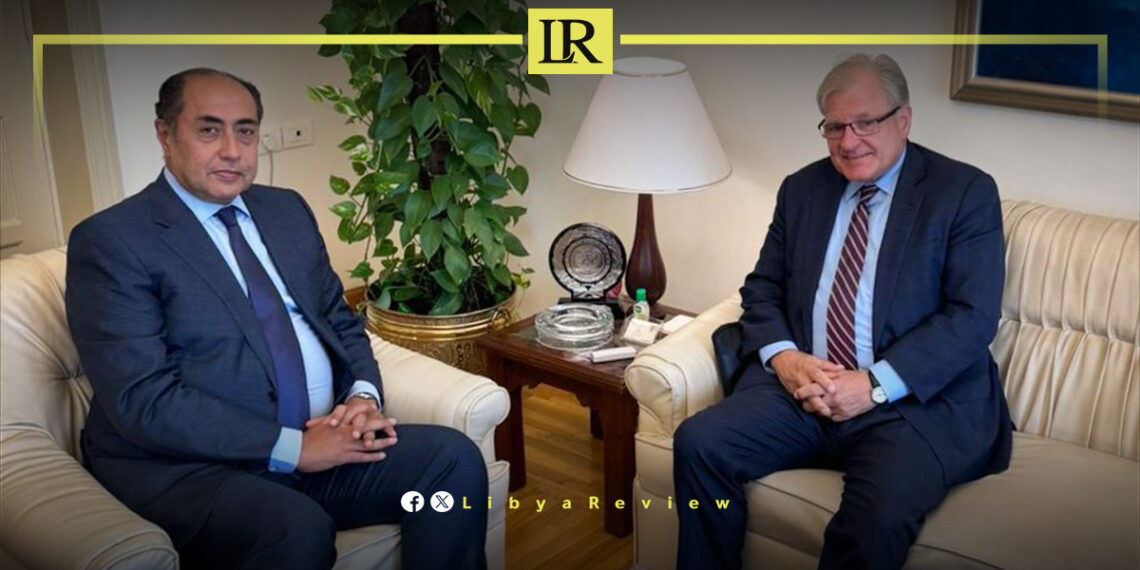US Special Envoy to Libya, Richard Norland, held what he described as “fruitful” consultations on Monday with Hossam Zaki, Assistant Secretary-General of the Arab League, regarding the ongoing situation in Libya.
Norland, through a post on the US Embassy’s Facebook page, reaffirmed that both the United States and the Arab League are committed to Libya’s unity, sovereignty, and stability during this critical time.
Previously, the Arab League hosted trilateral talks that brought together the leaders of Libya’s three key institutions—the Presidential Council, the House of Representatives, and the High Council of State. These meetings aimed to resolve disputes that have been preventing delayed elections from taking place.
Libya is currently facing a significant conflict over the leadership of the Central Bank of Libya. This follows a decision by the Presidential Council to appoint a new governor and reconstitute the bank’s board, a move that has been rejected by both the House of Representatives and the High Council of State.
Libya has been in chaos since a NATO-backed uprising toppled longtime leader Muammar Gaddafi in 2011. The county has for years been split between rival administrations.
Libya’s economy, heavily reliant on oil, has suffered due to the ongoing conflict. The instability has led to fluctuations in oil production and prices, impacting the global oil market and Libya’s economy.
The conflict has led to a significant humanitarian crisis in Libya, with thousands of people killed, and many more displaced. Migrants and refugees using Libya as a transit point to Europe have also faced dire conditions.
The planned elections for December 2021 were delayed due to disagreements over election laws and the eligibility of certain candidates. This delay has raised concerns about the feasibility of a peaceful political transition.
Despite the ceasefire, security remains a significant concern with sporadic fighting and the presence of mercenaries and foreign fighters. The unification of the military and the removal of foreign forces are crucial challenges.


